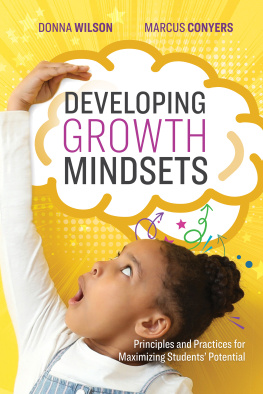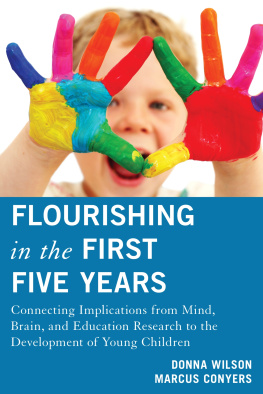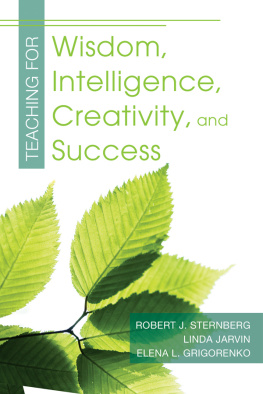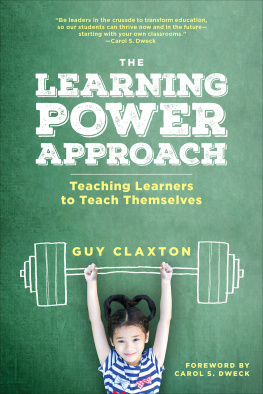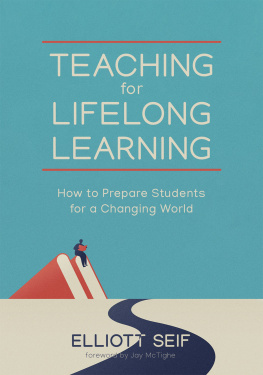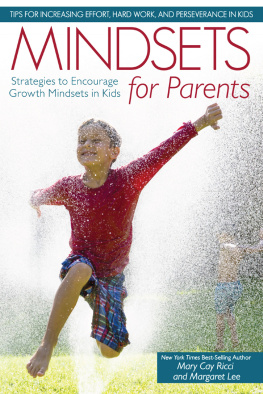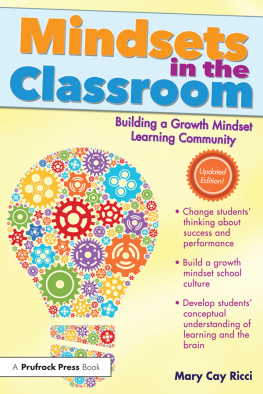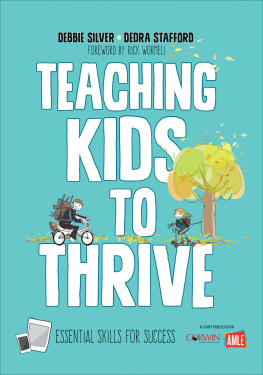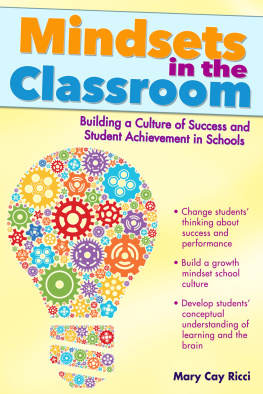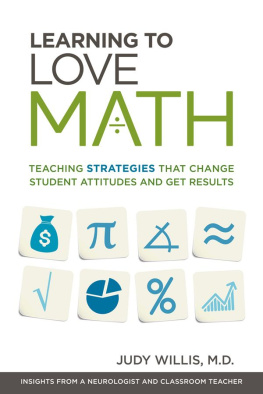Contents
Guide
Pages
Dedication
....................
We dedicate this book to educators we work with around the world who are empowering their students with the growth mindsets, skills, and knowledge they need to flourish and maximize their unique potential.
Acknowledgments
....................
We are continually inspired by the many educators who earned their graduate degrees with us focused on applied mind, brain, and education science (BrainSMART programs) with Nova Southeastern University or attended our professional development workshops. And we appreciate that they have shared with us the positive results they are achieving in their classrooms and schools. Within the pages of this book, you will find stories and perspectives from our graduates that exemplify the power of growth mindsets; these educators applied the knowledge, skills, and teaching and learning methods presented here in their professional practices. We thank Cecilia Beagle, Leanne Caparro, Diane Dahl, Michael Fitzgerald, D'Jon McNair, Kelly Rose, Maureen Ryan, and Melissa Smith for sharing their stories.
We appreciate the contributions from our editors Karen Bankston and Diane Franklin. In addition to their assistance in editing our work, we want to express our gratitude for their work in interviewing some of the teachers whose stories are shared here. Thanks also to Lorraine Ortner-Blake for creating the graphics that illustrate key concepts in this book. A big thank you to our wonderful team at ASCD, including the amazing Genny Ostertag, Joy Scott Ressler, Stefani Roth, and Thomas Lytle. We appreciate the many communications that we had with project manager Joy Scott, and the care that the publishing team took in presenting our work.
Finally, we acknowledge the significance of our own love, partnership, and life together in growing our mindsets and thriving in the work we do and enjoy.
Introduction
....................
The developmental sculpting of the brain's networks through learning is akin to the process of growing a botanical garden.
Mary Helen Immordino-Yang, Linda Darling-Hammond, and Christina Krone, The Brain Basis for Integrated Social, Emotional, and Academic Development (2018, p. 1)
Every school day, learners of all ages arrive in classrooms, each with a brain powered by some 86 billion neurons. Many of these neurons make approximately 10,000 connections to other neurons, which is an astounding amount of activity. Just one cubic centimeter of the human brain is estimated to have as many connections as there are stars in the Milky Way galaxy. Breakthrough research indicates that learning changes the structure and function of the brain and that the creation, strengthening, and pruning of neural connections are key to the learning process.
In essence, human beings have tremendous potential to acquire new knowledge, develop new skills, and improve their brains throughout life. Applying effective learning strategies enhances this process. These vital discoveries from mind, brain, and education research are seldomly explicitly taught to students, and this information is not necessarily a major emphasis in teacher education programs. We stand at a unique time in human history, with the opportunity to empower all learners through an understanding of their brains' awesome capacity to change as the result of learning and to equip them with practical learning strategies that can significantly improve the growth of knowledge and skills.
In our work with teachers, we have found that explicitly teaching fundamentals of brain plasticity is a critical component for fostering what Stanford University psychologist Carol Dweck describes as a growth mindset (2016a, 2019). Discovering that learning changes their brains helps students develop this mindsetthe belief that they can improve their knowledge and skills through the use of learning strategies and with guidance and support from teachers, coaches, and mentors. In a very real sense, understanding brain plasticity provides a scientific basis for adopting a growth mindset. And when educators model and teach effective learning strategies, students experience academic gains, which in turn support the process of sustaining a growth mindset to persist even through progressively more difficult learning tasks (Hattie & Anderman, 2020).
These concepts are at the foundation of our work in developing the BrainSMART programs for improving teaching, learning, and leading through the innovative applications of mind, brain, and education science. Some 165,000 educators around the world over the past two decades have studied these programs through pioneering master's and educational specialist degree programs, doctoral minors, and live professional development events. A key part of these programs has always been developing the learning mindsets that support higher levels of academic and life achievement. This has been achieved in part through the combination of explicitly teaching learners about brain plasticity and malleable intelligence (the concept that they can become functionally smarter through effort) and by modeling and teaching specific learning strategies that help them experience higher levels of success.
A hallmark of our approach is including many methods that educators can use "as is" or modify for their practice. This comes from the finding that, in professional development, it is the experience of using a new method in the classroom that makes a positive difference for teachers rather than only learning about a new belief system. As Thomas Guskey (2002) states, teachers experience the most significant changes in their attitudes and beliefs after they begin using a new practice and observe the positive effect on student learning. We developed this formula to represent this dynamic:
Mindset + Methods = Growth
The mindset in the formula refers to the learners' set of assumptions and beliefs about their potential to learn and grow. We define potential as "the neurocognitive capacity for acquiring the knowledge, skills, and attitudes to achieve a higher level of performance in any domain" (Conyers & Wilson, 2015a, p. 4). This definition connects well with the idea that functional or successful intelligence, defined as "one's ability to succeed in life," can be improved (Sternberg, 1999, pp. 292293; Sternberg, 2018). Mindset can be the engine of motivation (Hattie & Anderman, 2020). When we assume that we can make progress through effort and the use of effective strategies, we are motivated to invest more energy in the learning process. The growth mindset also keeps us going in the face of difficulties and setbacks, as such occurrences can be regarded as feedback telling us we need to use different strategies, ask for help, or invest more time and effort to achieve the desired results.
The methods in the formula represents a suite of learning and teaching strategies, skills, lesson ideas, and frameworks, such as those presented throughout this book, for improving learning. As the sum of these components, growth refers to ever-increasing levels of knowledge and skills over time. The three elements in this formula work together in a positive feedback loop.
Learning, Teaching, and Mindsets
When I (Donna) first became a teacher and then a school psychologist many years ago, I encountered countless students from across the continuum of socioeconomic status who appeared to be bored, disengaged, and disinterested in school, although I had no doubt they had the potential to succeed. Some of the students I met had experienced circumstances that affected their learning ability at school, such as living in poverty or moving frequently and having to acclimate to new schools. However, many students I encountered had none of these issues yet seemed to feel disconnected from school and generally without hope for succeeding academically, much less enjoying their educational experiences. What became clear was that all of these students could greatly benefit from having what we now know as a growth mindset.

